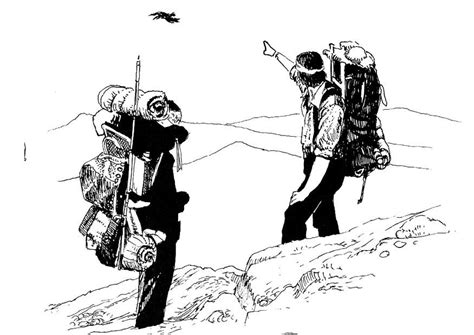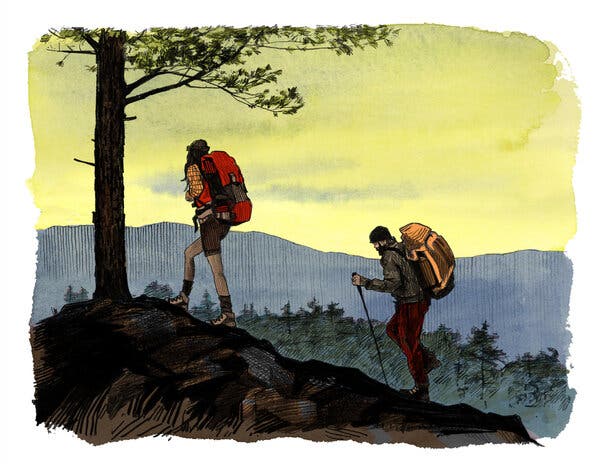Exploring the natural wonders of the world is an exhilarating experience, but it often comes with the challenge of navigating culture shock. When stepping into unfamiliar environments, the differences in customs, language, and social norms can be overwhelming. Understanding and preparing for culture shock is crucial to fully embracing the beauty and uniqueness of these destinations. This article provides essential tips to help travelers anticipate and manage culture shock, ensuring that their journey to explore the world’s most breathtaking landscapes is both enriching and enjoyable. Whether you’re a seasoned explorer or a first-time traveler, these insights will guide you through the experience.
Explore this topic with ritarblog.com in great detail.
1. Understanding Culture Shock: What to Expect
Traveling to destinations vastly different from our own can often lead to a phenomenon known as culture shock. This refers to the feelings of disorientation and discomfort that arise from encountering unfamiliar customs, behaviors, and environments. Having an awareness of what to expect can greatly assist in navigating these emotions effectively.
The initial experience of a new culture is often a honeymoon phase, filled with excitement and the thrill of the unfamiliar. As the novelty fades, however, frustration, confusion, and homesickness can set in. This stage is marked by a yearning for familiar comforts and may result in negative feelings towards the host culture.
As you continue your journey, you might enter the adjustment phase, where you gradually become more accustomed to the differences. This period involves learning to accept and understand the new culture, finding ways to adapt, and slowly building a sense of normalcy. Finally, many travelers reach the mastery stage, where they feel fully integrated into the new environment, embracing the local customs with confidence and ease.
Expecting these stages and recognizing them as part of the experience can help you better manage culture shock. By staying open-minded and patient, you can turn these challenges into opportunities for personal growth and deeper connections with th

2. Research and Preparation Before Traveling
To minimize culture shock when traveling to unfamiliar destinations, thorough research and preparation are paramount. Before embarking on your trip, invest time in learning about the cultural norms, traditions, and social etiquette of your destination. By understanding local customs, you can prevent misunderstandings and demonstrate respect for the host culture.
To better understand the region and its people, begin by immersing yourself in its history, major religions, and significant cultural practices. This knowledge provides essential context for interpreting behaviors and attitudes you may encounter. Furthermore, learning a few common phrases in the local language, even simple greetings, can significantly enhance your ability to connect with locals and build rapport.
Being mindful of cultural taboos and sensitive topics is crucial to prevent unintentional social blunders. A thorough understanding of dress codes, expected public behavior, and dining customs will equip you to confidently handle daily interactions.
Gaining cultural knowledge in advance will help you better navigate differences and adjust more seamlessly to your new surroundings. This preparation not only reduces the impact of culture shock but also enriches your travel experience, allowing you to fully appreciate the nuances of the local culture.

3. Effective Communication Strategies
Overcoming culture shock and forging meaningful connections while traveling hinges on effective communication. When faced with language barriers, patience and adaptability are paramount. Start by learning basic phrases in the local language, such as greetings, expressions of gratitude, and simple questions. Even these small efforts to speak the local tongue are often appreciated and can bridge the initial gap.
Nonverbal communication also plays a significant role. Pay attention to body language, facial expressions, and gestures, as these can vary widely between cultures. When in doubt, observe how locals interact and mirror their behaviors to avoid misunderstandings.
Utilizing technology, such as translation apps, can help bridge language gaps, but try not to rely on them entirely. Engaging with locals using a mix of verbal and nonverbal cues can lead to more authentic interactions.
Remember, a smile and a friendly attitude go a long way in making connections, even when words fail. Effective communication fosters trust and understanding, making your cultural experiences more enriching and enjoyable.

4. Embracing Local Customs and Etiquette
To have a positive and respectful travel experience, it’s essential to embrace local customs and etiquette. By actively engaging in the cultural practices of your destination, you demonstrate appreciation for the host culture and build stronger connections with the people you encounter.
Begin by carefully observing and imitating the local customs. This could involve noticing how people greet one another, their dining etiquette, or their fashion choices. Paying attention to these details allows you to seamlessly integrate into the culture. For example, in certain cultures, removing shoes before entering a home is considered polite, while in others, a strong handshake or a bow may be the accepted greeting.
Respect for local traditions extends even to more formal occasions. When attending a religious ceremony, family gathering, or community event, it’s important to observe the behavior of others and follow suit. Dress appropriately, use respectful language, and be mindful of your actions throughout the event.
Understanding cultural sensitivities and taboos is crucial. What is considered polite or humorous in your own culture may be offensive in others. A bit of research and a willingness to inquire about appropriate behavior from local people can help avoid unintended disrespect.
By embracing local customs and etiquette, you not only show respect but also gain a deeper understanding of the culture. This approach enriches your travel experience, allowing you to fully immerse yourself in the local way of life.
5. Building Connections with Locals
Connecting with local people is a deeply rewarding part of travel, helping to mitigate culture shock. These relationships provide an authentic window into local life, enriching your understanding of the culture.
Begin by demonstrating sincere interest in those you encounter. Inquire about their customs, traditions, and daily routines, and listen intently as they share their stories. This open and curious approach conveys your respect and eagerness to learn, paving the way for enriching interactions.
Engage in community life by attending local markets, festivals, or neighborhood gatherings. These events create natural opportunities to connect with residents and gain insights from their experiences. Volunteering or taking local classes, such as cooking or language courses, can also foster meaningful relationships.
Approaching interactions with locals requires humility and an open mind. Remember that your own cultural background may be different, so be prepared to learn and adjust your approach accordingly.
Engaging with the local community during your travels goes beyond enriching your experience; it fosters enduring memories and friendships. By building genuine connections, you’ll not only ease the transition into a new culture but also gain a deeper, more nuanced understanding of the place you’ve visited.
6. Maintaining a Positive Mindset
A positive attitude is key when facing culture shock during your travels. While navigating unfamiliar environments and customs can be difficult, your mindset will greatly influence your ability to adjust and embrace these new experiences.
Begin by embracing the idea that culture shock is a normal part of the travel process. Instead of viewing it as a setback, consider it an opportunity for personal growth and learning. A positive outlook allows you to approach unfamiliar situations with curiosity rather than frustration.
When faced with difficulties, practice patience and flexibility. Remember that it’s okay to feel out of place or overwhelmed at times. Give yourself permission to take things slowly and to make mistakes—these moments are often where the most valuable lessons are learned.
Staying open-minded and focusing on the positive aspects of your journey can also help you stay grounded. Celebrate small victories, like successfully navigating a conversation in a new language or trying a local dish. These achievements, no matter how minor, reinforce your ability to adapt.
Surround yourself with supportive people, whether fellow travelers or locals who can offer guidance and encouragement. By keeping a positive mindset, you’ll not only manage culture shock more effectively but also enhance the overall richness o
ritarblog.com

